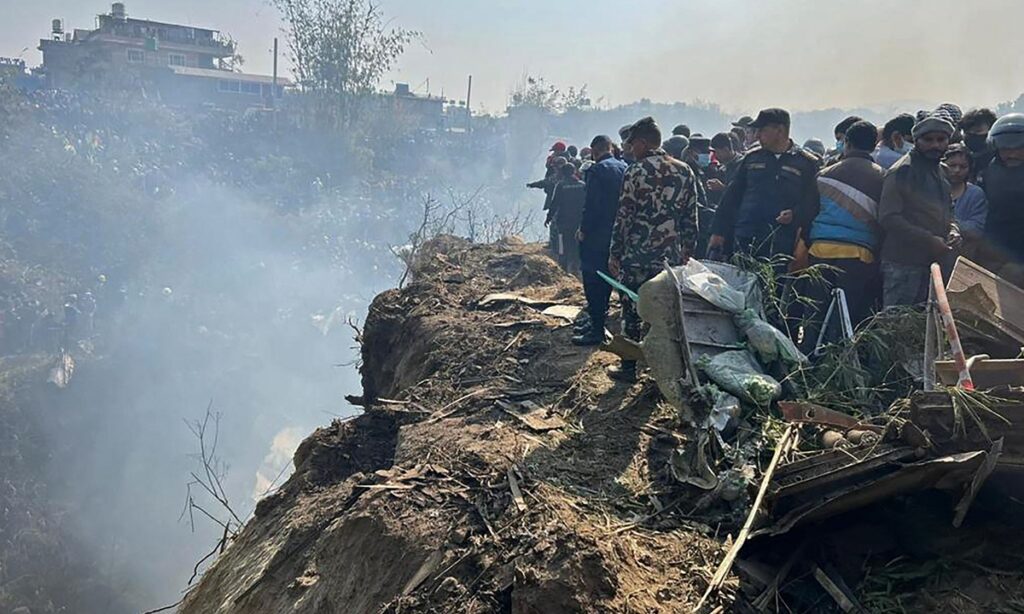The Chinese Embassy in Nepal said that China is deeply saddened by the heavy casualties caused by the passenger plane crash in Nepal and expressed deep condolences to the victims and deep sympathy to the bereaved families.
A domestic flight crashed in Pokhara, Nepal, in the small Himalayan country’s worst crash in three decades. Seventy-two people were aboard the twin-engine ATR 72 aircraft operated by Nepal’s Yeti Airlines, 68 passengers and four crew. Of the passengers, 15 were foreigners and 53 were Nepalis, local media reported. All have been confirmed dead, TASS reported, citing an airline spokesperson.
Upon learning of the crash, the embassy immediately activated the emergency mechanism to learn more about the situation. It has been verified that no Chinese nationals were on the plane, the Chinese Embassy said in a statement released on Sunday night.
Nepal’s Civil Aviation Authority told the Global Times in a statement that the weather on Sunday was clear. The causes of the crash are under investigation.
On Twitter, Nepali Prime Minister Pushpa Kamal Dahal expressed his sadness over the crash. The government announced a National Day of Mourning on Monday for the victims.
Air accidents are not uncommon in Nepal due to the elevated mountainous terrain, as it has eight of the world’s 14 highest mountains, including Mount Qomolangma (The Everest) – where the weather can change suddenly and make for hazardous conditions. Over the last 30 years, there have been nearly 30 fatal plane crashes in Nepal, the most recent – before the Pokhara plane crash – being a Tara Air crash, in May 2022, killing 22 people on board, local media reported.
Experts speculated that mechanical fault might be one of the reasons, based on the fact that the weather conditions were good on Sunday.
Meanwhile, Nepal’s air industry has been plagued by poor safety due to insufficient training and maintenance. The European Union has banned Nepalese airlines from its airspace over concerns about training and maintenance standards in the country’s aviation industry, the Guardian reported.
The accident sounded an alarm again that the aging fleet of Nepal’s aviation industry demands prompts solutions, Qian Feng, director of the research department at the National Strategy Institute at Tsinghua University, told the Global Times on Sunday.
Qain said that cooperation between China and Nepal can perhaps facilitate the upgrading of the aviation industry in Nepal.
Himalaya Airlines, a joint venture between China and Nepal, announced the resumption of direct flights between Beijing and Kathmandu, the capital of Nepal, on January 17, in a bid to resume people-to-people exchanges and cooperation in economic tourism. Nepalese travel agencies believe that millions of Chinese tourists are expected to go abroad this year and they are welcome to visit Nepal again.
(Global Times)




